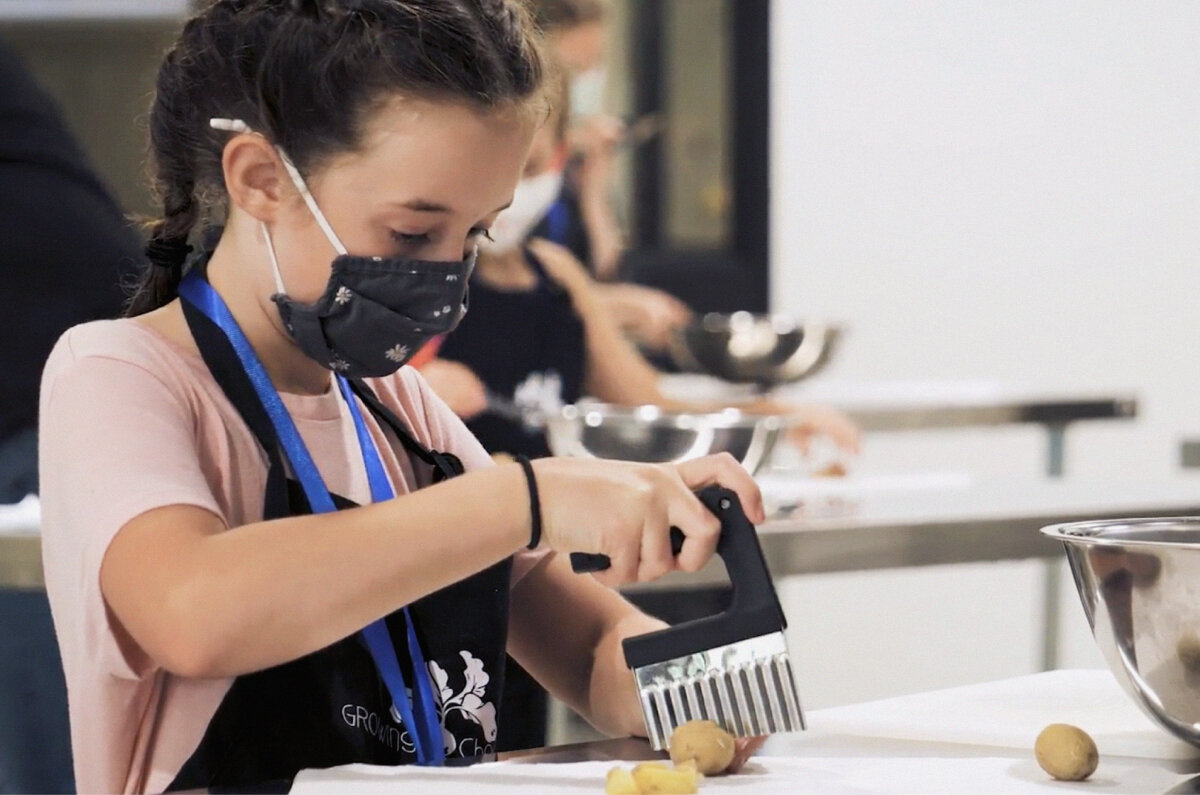Thoughts on Food and Food Security
Photography by Jamie Gagain
Written by Andrew Fleet, Founder/Executive Director, Growing Chefs! Ontario
For the past 13+ years Growing Chefs! has worked directly with over 40,000 children, youth and families, in over one hundred schools and dozens of local organizations, to help educate Londoners about food, food systems and how to develop the tools, strategies, skills and drive to make healthy change in their lives.
In that time, we have learned that food is intensely personal and everyone faces different barriers in terms of making positive changes in their daily diets. For some, it's not having access to healthy foods or it's a lack of time; for others, it's personal preference and anxiety around approaching new foods. But for the majority, it is simply not having an understanding of why our connection to food is so important.
Food is a common link between all humans – sure, we need it to survive, but it is so, so much more than that. Food is our history. We share our culture through our recipes, dishes, cooking techniques and traditions. It connects us all and distinguishes our differences. Food is intricately woven into our stories and celebrations providing a unique common point from which to learn about each other.
If we properly value food, and all of its economic, environmental, social, health and community impacts, we understand how important it is to ensure we are choosing sustainable food options — personally, and systematically. If we all demanded sustainable food practices, producers, suppliers and retailers would ensure they could provide those options.
If we properly valued food, we would consider how important it is for everyone in our communities to have access to culturally relevant, fresh, healthy foods! We would ensure local farmers can actually make a living, and have a future producing food. We could ensure that our children, and their children have access to food in the future the same way that we do now.
Those of us with the means have the capability to purchase literally any type of food we could ever want at any time. Sure, we are encouraged to give to those who don’t have the same access. But more often than not, we either give them the foods we value less, the cans in the cupboard we were never going to eat which we would have thrown away eventually, or highly processed, packaged foods because they have a long shelf life, with no concern of whether or not it has any nutritional value. It highlights both how we value the struggles of those in less fortunate living situations as well as how we value food itself.
Our food system is broken. The vast majority of us collectively value food by considering its retail price, its availability, its convenience. We value the foods we like or prefer, and disregard the rest.
What we don’t generally consider are the resources used or the time and energy of the people who grow and raise our food, the livelihoods of the people that work to move food around the globe to ensure that a privileged few of us can eat whatever and whenever we want. We don’t consider the environmental impacts our food has on the world or the massive medical costs from people who either don’t have enough food, or access to fresh, nutritious food. And we don’t talk about people who choose to eat food that makes their bodies sick.
Food security starts with food education to help the next generation understand the role that food has played through our history and needs to play as we adapt our social, economic, and food systems to an uncertain future. And It starts with those of us who have the privilege of access.
We have the means to shift the system. We just have to be willing to do the work. As individuals and as a society. The time is now. Our future depends on it.

